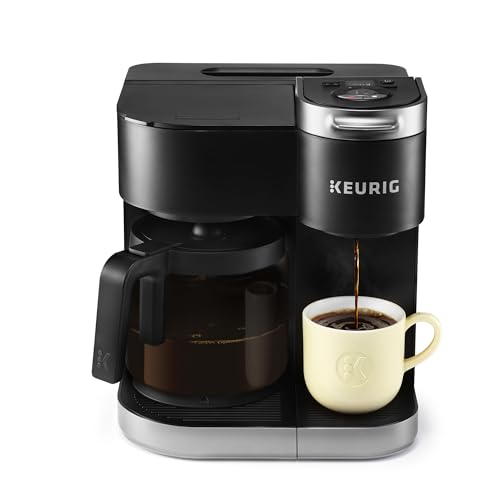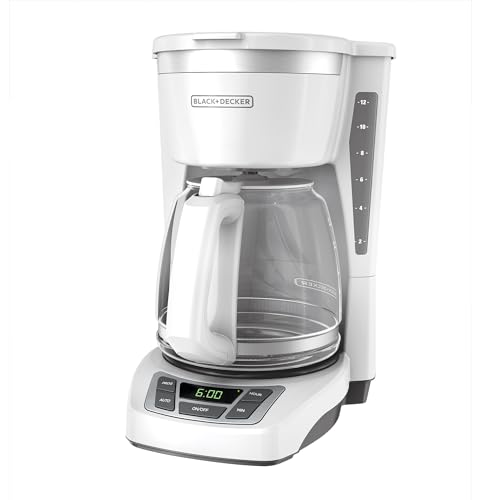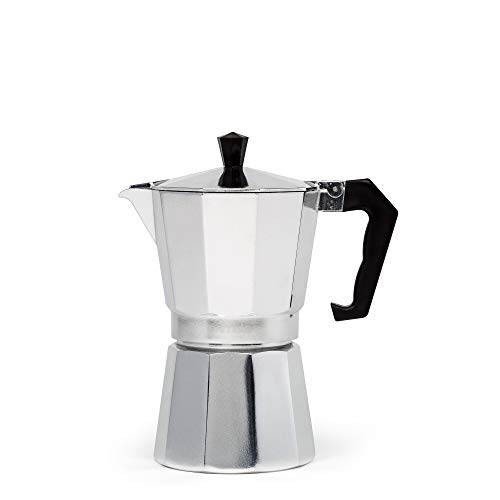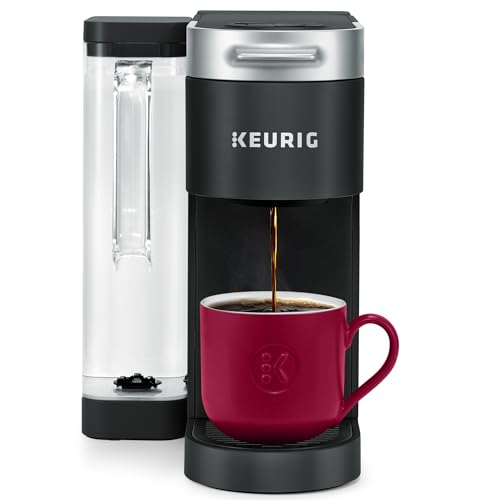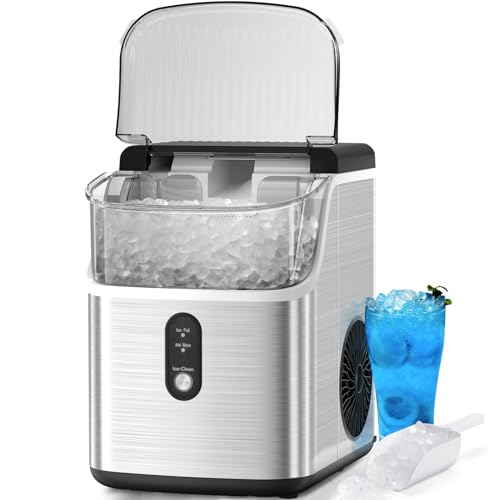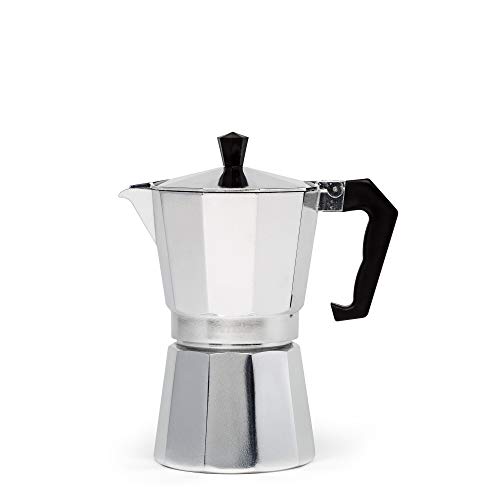“Can You Use Aluminum Foil In The Oven?” is a curious question that many oven users find themselves asking. It’s a topic that might seem straightforward, but it holds a surprising depth and importance in the realm of kitchen safety.
The use of aluminum foil in the oven can be a controversial subject. Some believe it’s a handy tool, while others caution against its use. It’s a question that leads us to consider the broader aspects of food preparation, safety, and the efficient use of kitchen appliances.
In the following sections, we will delve into this topic in detail, examining the pros and cons, the science behind it, and offering practical advice. This article is intended to provide valuable insights that will help you make an informed decision and ensure your cooking experience is both safe and efficient.
Can You Use Aluminum Foil In The Oven?
The short answer to the question is yes, you can use aluminum foil in the oven. However, the key lies in how you use it. Aluminum foil has been a long-time staple in kitchens, thanks to its versatility. It’s used in baking, roasting, and storing food. It’s particularly praised for its capacity to retain heat, thus cooking food more evenly and quickly.
However, it’s not without its share of controversy. There are concerns about aluminum leaching into food, especially when cooking acidic foods or at high temperatures. While the FDA considers it safe, studies show prolonged exposure could pose health risks.
Moreover, improper usage of aluminum foil could pose a fire hazard. Foil should never make contact with the heating element, and it’s advisable to avoid covering the oven’s bottom as it can cause heat to be trapped, leading to higher cooking temperatures than intended.
So, while it’s perfectly fine to use aluminum foil in the oven, it’s crucial to do so cautiously and responsibly. The potential risks can be mitigated by following safe practices such as avoiding the use of foil when cooking acidic foods, not letting it touch the heating element, and always using it in moderation.
See more: How To Use An Oven Toaster
Benefits of Using Aluminum Foil In The Oven
Aluminum foil is often appreciated for its convenience and versatility in the kitchen. One of its significant benefits is that it helps cook food evenly. As a good conductor of heat, aluminum foil ensures even heat distribution, reducing the chance of unevenly cooked or burnt food.
Another advantage it offers is a reduction in cooking time. The heat-reflective properties of aluminum foil can help accelerate the cooking process. This can be particularly useful when preparing large meals or when time is of the essence.
Moreover, aluminum foil is excellent for keeping food moist while baking or roasting. By creating a tightly sealed packet or tent, you can lock in steam and prevent drying out, ensuring your meat comes out juicy and tender.
Aluminum foil can also provide a much-needed respite from the dreaded task of cleaning up. By lining baking sheets or pans with foil, you can save yourself the hassle of scrubbing baked-on food and grease. After use, simply remove the foil and dispose of it responsibly.
Lastly, aluminum foil can be used to store leftovers. It creates an airtight seal that preserves the food’s freshness and prevents it from absorbing odors from other foods in the fridge. However, it’s important to note that for long-term storage, especially for acidic foods, plastic or glass containers would be a safer choice.
In conclusion, despite the controversies surrounding its use, aluminum foil can offer several benefits when used responsibly in the oven. It’s a versatile tool that can enhance your cooking and baking experience, provided you’re aware of its potential risks and take necessary precautions.
Precautions to Take When Using Aluminum Foil in the Oven
Though aluminum foil is commonly used in the kitchen, it’s crucial to use it responsibly, especially in the oven. Here are some precautions to keep in mind when using aluminum foil in the oven.
Never cover the oven’s bottom with aluminum foil. This can trap heat and lead to overheating, potentially causing a fire. Instead, place a baking sheet or pan on the lower rack to catch any drips.
Avoid direct contact of aluminum foil with the heating elements. This also poses a fire hazard. Always make sure the foil is on a tray or in a dish and adequately supported.
Refrain from using aluminum foil when cooking acidic foods like lemons, tomatoes, or foods marinated in vinegar. Acidic foods can lead to the leaching of aluminum into the food, which can potentially pose health risks.
Importantly, don’t use aluminum foil in a microwave oven. Aluminum foil can cause sparks when it comes into contact with the oven walls, leading to a fire hazard.
Lastly, always use aluminum foil in moderation. While it’s a versatile tool, it’s good to mix in other cooking methods and materials to mitigate any potential risks associated with long-term exposure to aluminum.
In conclusion, while aluminum foil can be a handy tool in the kitchen, it’s important to use it responsibly and be aware of potential risks. By following these precautions, you can enjoy the benefits of aluminum foil safely and responsibly.
FAQs
While aluminum foil has proven to be a versatile companion in the kitchen, its use requires a balance between convenience and safety. It’s vital to be informed and responsible when using aluminum foil in the oven, particularly considering potential health risks and fire hazards.
Can cooking with aluminum foil cause Alzheimer’s?
There has been some debate about the link between Alzheimer’s disease and aluminum for many years. Some studies suggest that aluminum exposure may increase the risk of Alzheimer’s disease, but the results have not been consistent and the link remains controversial.
The Alzheimer’s Association states that “studies have failed to confirm any role for aluminum in causing Alzheimer’s.” While using aluminum foil for cooking does not mean that large amounts of aluminum will be absorbed into your body, it’s always wise to take precautions such as not using it to cook acidic foods, which can increase aluminum leaching.
Can I put aluminum foil in the oven without it catching fire?
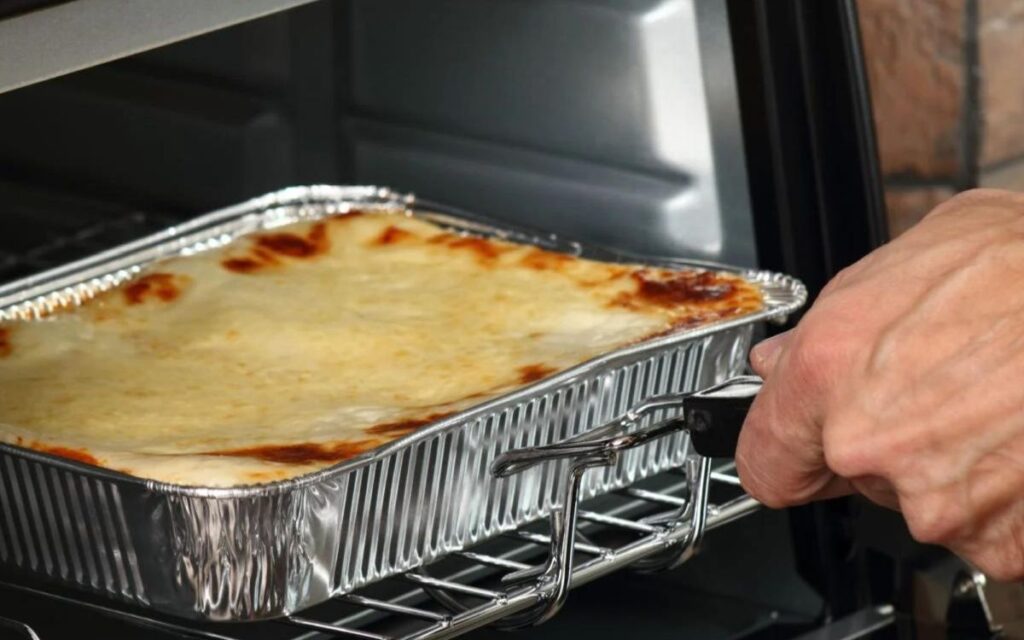
Yes, you can safely use aluminum foil in the oven without it catching fire, provided it is used responsibly. The key is to avoid direct contact with the heating elements and not to cover the bottom of the oven with the foil, as these practices can pose a fire risk.
Instead, you can line baking trays or dishes with foil, ensuring it is adequately supported and not touching the oven walls or elements. Combining the use of aluminum foil with other cooking materials can also help mitigate potential risks.
Is it safe to wrap food in aluminum foil for storage?
Wrapping food in aluminum foil for short-term storage can be safe and practical. It provides an airtight seal, preserving freshness, and preventing the food from absorbing odors from other items in the fridge. That being said, for long-term storage or for storing acidic foods, it’s recommended to use plastic or glass containers.
This is because acidic foods can lead to aluminum leaching into the food, and prolonged exposure could potentially pose health risks. Always consider the nature of the food and the length of storage when deciding between aluminum foil and other storage options.
Final Thought
Aluminum foil is a versatile kitchen tool that can enhance your cooking and baking experience. It offers numerous benefits, such as accelerating the cooking process, keeping food moist, aiding in cleanup, and assisting in food storage. However, it’s crucial to use this tool responsibly to avoid potential risks.
Overuse of aluminum foil, or using it incorrectly, can pose hazards, including a potential fire risk or health issues related to aluminum leaching into food. Therefore, never cover the oven’s bottom with foil or allow the foil to come into direct contact with the oven’s heating elements.
While aluminum foil can assist in cooking and storing food, it is not always the safest or most effective option. For example, when storing acidic foods or for long-term storage, plastic or glass containers are a safer choice.
In conclusion, while aluminum foil is a beneficial tool in the kitchen, its use should always be balanced with safety considerations. By using aluminum foil responsibly and being aware of potential risks, you can enjoy its benefits and maintain a safe cooking environment.
